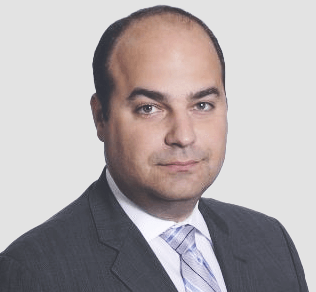
Analysis
A comparative analysis of CLO ETF returns
Rudolph Bunja
Head of Portfolio Credit Risk
Nick Harris
Junior Data Analyst

Exchange-traded funds (ETFs) composed of collateralized loan obligations (CLOs) have grown significantly in recent years. The underlying CLOs consist primarily of senior secured broadly syndicated loans (BSLs). Although retail investors have had access to BSL funds for over 30 years through open-ended leverage loan mutual funds and for over a dozen years through ETFs, the first publicly traded CLO ETF was launched only in 2020. Prior to this development, CLO investments were predominantly made by institutional investors. This is particularly noteworthy given that historically anywhere from a half to up to two-thirds or more of the US BSL market are held by CLOs[1].
This paper examines the performance of a sample of publicly traded CLO ETFs based on historical returns. The sample encompasses various CLO ETFs that target a range of tranche seniorities, reflecting different levels of credit risk as indicated by their ratings. Additionally, the performance of BSL ETFs, from which we selected a sample, is considered to provide a reference point, given that a CLO tranche is fundamentally a derivative of its underlying BSL portfolio.
Our analysis of the historical daily returns and correlations of the ETFs indicates that over a longer period (such as two years), the risk/return characteristics amongst the ETFs are generally consistent with the underlying risk profile of the relevant ETF – i.e. similar performance levels for similar risks – and moderate correlations. However, an examination of daily CLO ETF returns and correlations over a short volatile period can exhibit a noticeable divergence in absolute and relative performance. These findings indicate that the ‘intuitive’ view that CLOs and BSLs are highly correlated may not be evident until there is significant market volatility. And even in that case, differences in performance indicate that other factors may be at play.
Our analysis found that CLO correlations may be further explained at times by vintage and underlying asset manager exposure rather than just broader BSL market dynamics. We offer additional insights and key factors that can impact the performance between CLO portfolios.
Historical Returns – Data
Our sample of CLO ETFs spans the range of tranche seniorities and the credit ratings scale – from CLO ETFs that focus primarily on senior tranches (rated primarily Aaa) to those that focus on investment grade mezzanine tranches (rated from Aa to Baa). And even to those that include some speculative grade tranches (Ba). Our study also considers BSL ETFs to acknowledge that CLOs are derivatives of the BSL market.
In this context, the relationship between CLOs and the underlying BSL market could provide additional insight into the performance of CLOs. We also included some other market related ETFs to gain additional insight as to the performance of the BSL and CLO markets relative to the broader capital markets. Thus, the selected ETFs can be grouped into three categories: BSL, CLO and other broader markets.
BSL Category
We selected four BSL ETFs that are managed by well-established asset managers and have benchmarks to broad BSL indices.
Table 1: List of BSL ETFs
CLO Category (BSL-Derived)
We selected a variety of CLO ETFs that invest in CLO tranches across the CLO capital structure, and with investments in CLOs across a range of vintage periods and asset managers.
Table 2: List of CLO ETFs
Understanding the underlying ratings distributions gives further insight into the level of exposures a CLO ETF has within a typical CLO capital structure. The CLO portfolios within our sample cover a range of credit risk exposures – from a fund with essentially 100% Aaa to other funds with a broader representation of investment-grade ratings as well as funds with concentrations of Baa/Ba credit risk[2].
Other Broader Markets Category
We also included ETFs that can provide additional perspective on the relative performance of the BSL and CLO markets to the broader capital markets.
In this context, we selected a small cap equity ETF (IWM) since many BSL borrowers would fall in the small cap category; a high yield bond ETF (HYG) since these issuers have a similar credit risk profile (though with different recovery rate and interest rate risks) as compared to BSLs; and a short-term Treasury fund ETF (VGSH) to provide some benchmark of shorter-term risk-free interest rates.
Looking at Financial Performance
We focused on the risk-return and correlation characteristics across the ETFs. We looked for insights into how the ETFs performance behaved with one another within the same category (‘intra-category’), and across categories (‘inter-category’) over different time periods. We observed that both intra-category and inter-category performance and correlation metrics depended heavily on which period we selected. We found that during the most recent market volatility (April 2025), patterns emerged that were not so evident during calmer periods.
In some cases, the correlations we observed between the BSL and CLO ETFs were not as consistent as expected. Understanding that CLOs are derivatives of the BSL market, we initially expected to see a relatively higher degree of correlation across all market environments, but the correlations across all market environments varied. This observation suggests that not all CLOs track the same broad ‘BSL market’.
We also found that CLO performance could be influenced by unique factors related to range of vintage periods of when the underlying CLOs were issued and the overall exposures to common CLO asset managers.
These findings show that these variations across CLO portfolios can offer an opportunity for CLO investors to diversify their BSL and BSL-derivative portfolios to better optimize their specific risk-return objectives. In other words, not all BSL and CLO ETFs are alike.
Historical Performance – ‘Normal Times’
We chose two distinct historical return periods to begin our comparative analysis. One that we could classify as a ‘normal’ period and the other as a ‘volatile’ one. We chose the month of April 2025 as the volatile period. This period reflected significant market volatility due to the rapidly changing global trade outlook and economic uncertainties associated with the related US tariff announcements.
We selected the two-year period from April 2023 through March 2025 as a proxy of ‘normal market conditions’ and can be considered somewhat as a benchmark. Exhibits 1 and 2 show the historical return statistics and correlations of daily returns for each of the ETFs, respectively. Note that two of the ETFs in our sample were not in existence for the full two year-period analyzed. Thus, summary stats are not available, and correlation stats apply only for the respective period that each of these two ETFs was in existence.
We note that the return and risk characteristics across the ETFs are generally as expected within each investment category and subcategory. For example, among the BSL ETFs we note that there is no material distinction among the standard deviations and coefficients of variation. Among the CLO ETFs, the riskier CLO ETFs with lower rated tranches show higher volatility and coefficients of variation as compared to those CLO ETFs with higher rated tranches. The high yield bond ETF was the most volatile among the credit-sensitive ETFs. As expected, the small cap stock ETF was the most volatile while the short-term Treasury ETF was the least.
Exhibit 3 summarizes the cross-category correlations of historical daily returns. These are based on simple averages of correlations amongst the ETFs within their respective categories. The text box on the right provides guidelines for assessing the correlation results presented in this paper.
During ‘normal times’ NONE of the observed correlations were assessed to be Strong or Very Strong. All the correlations were assessed to be in the Moderate and Weak/Very Weak categories. Only 4 of the 22 observed correlations were assessed as Moderate while the remaining 18 were Weak / Very Weak. Three of the four that were Moderate, were related to the BSL category – BSLs to: BSLs, HY Bonds, and small cap stocks, respectively.
These observations suggest that during normal times, the correlations were not particularly significant for the CLO ETFs. Furthermore, CLO performance did not appear to be materially correlated to other credit risk assets, including the BSL market. Even within the CLO category, correlations were relatively marginal across the CLO capital structure, which suggests that movements in CLO tranche risk premiums seem to be more idiosyncratic during stable markets. These results are not surprising given that the CLO tranches are supported with credit enhancement – unlike CLO equity tranches, which we would expect to be more sensitive.
Exhibit 1: ETFs historical return statistics (April 2023 – March 2025)
Exhibit 2: ETFs Historical Daily Return Correlation Matrix (April 2023 – March 2025)
Exhibit 3: ETF Categories Historical Daily Return Correlation Matrix (April 2023 – March 2025)
Historical Performance – ‘Volatile Markets’
As previously explained, we defined the ‘volatile’ period to be the month of April 2025, a period of significant market volatility. Exhibits 4 through 6 show the various historical return statistics for the ETFs during this period.
One can immediately notice the significant jolt in the related risk statistics for all ETFs and the correlations among them. Below are some noteworthy observations based on the comparison of risk statistics between the two periods.
- CLO ETFs experienced the largest increase in risk measures, measured both by volatility (4x to 11x increase) and the range of daily returns (1.5x to 4x higher).
- BSL ETFs experienced roughly a 4x increase in volatility and about a doubling of the range of daily returns.
- Traditional ‘risk’ asset categories of high yield corporate bonds and small cap stocks did not show as much of a relative increase as the BSLs and CLOs – a relatively modest 2x increase in volatility and a 50% increase in range of daily returns. These asset classes, albeit riskier as they are typically subordinated relative to BSL, are more liquid and established markets. For the short-term Treasury ETF, the risk performance in April 2025 was relatively indistinguishable than during the ‘normal’ period.
With respect to correlations, our observations show a sharp increase. Whereas during ‘normal’ times, correlations are not meaningfully significant, this changed during ‘stressed’ markets – half of the observed correlations are now assessed to be Strong and Very Strong (11 of the 22 observations) whereas 3 of the 22 are now Weak/Very Weak.
While correlations increased substantially, there were still some areas of divergence in performance that are worth noting. For example, the CLO ETFs such as the higher rated investment grade CLO ETFs show moderate correlations to all other asset classes. This implies that CLO ETFs may offer some diversification benefits (especially as you move up the capital structure associated with greater credit enhancement) even in stressed markets. However, the CLO ETFs with lower-rated tranches did show very strong correlations to the ’risk’ assets, but that is to be expected given their tranches’ higher degree of credit risk exposure associated with lower levels of credit enhancement.
Exhibit 4: ETFs historical return statistics (April 2025)
Exhibit 5: Historical Daily Return Correlation Matrix (April 2025)
Exhibit 6: ETF Categories Historical Daily Return Correlation Matrix (April 2025)
Other Observations
A detailed attribution analysis of the underlying CLO ETF performances is outside the scope of this paper. However, we performed some high-level reviews of the CLO portfolios to look for potential factors that could affect the performance of the CLO ETFs and help explain some of the correlation behavior CLOs experienced, especially during the ‘volatile’ period as CLOs appeared to exhibit lower intra and inter correlations than the other asset classes.
Additional factors beyond market considerations appear to emerge when we look closer at the CLO portfolios. In addition to diverse capital structure exposures, we observed that the CLO ETFs had relatively diverse CLO vintage exposures. While exposures to common asset managers across the CLO ETFs could be significant, we noticed that the exposures were often across various CLO vintages of common managers.
Investing across CLOs with unique asset managers can provide diversification benefits despite targeting the BSL market. Different managers may have varying investment styles, strategies, size (or AUM), as well as industry/sector and credit expertise.
Notwithstanding the fact that a CLO portfolio may consist of several CLOs managed by the same entity, there can be advantages from diversifying across vintages. CLOs can be executed under different market conditions and potentially with variations in reinvestment criteria, even given identical CLO portfolio managers. Furthermore, CLOs from different vintages may be at various stages in their lifecycle, such as the reinvestment or amortization period, which also affects the level of a CLO’s reinvestment activity, as well as being past their non-call period, which can indicate the degree of potential refinancing activities.
Conclusion
ETFs composed of CLOs, with underlying BSLs, have experienced significant growth in recent years. While retail investors had access to funds of BSLs for over 30 years, the first publicly traded CLO ETF was introduced in 2020. This is noteworthy since a large part of the BSL market is held by CLOs and thus offers a broader group of investors to participate in the BSL-derived market across various risk/return profiles.
This paper analyzed the performance of CLO ETFs based on a sample of historical returns. The sample included different ETFs that target a range of CLO tranche seniorities, representing varying levels of credit risk. The performance of some BSL ETFs was also reviewed since the performance of a CLO tranche is essentially derived from its underlying BSL portfolio.
Our analysis of the historical daily returns and correlations of the ETFs show that over a longer ‘normal’ period, co-movements in performance are moderate and the risk/return characteristics across the ETFs are generally consistent with their underlying risk profile. However, CLO ETF returns and correlations can exhibit a noticeable divergence in performance and increase in volatility over a shorter period of extreme uncertainty. An example of which was during the recent period of market fluctuations caused by the US tariff announcements.
We also found that CLO correlations can be explained further by key factors such as the distribution of exposures to: (1) seniorities of the CLO tranches, (2) the vintage periods of when the CLOs were issued, and (3) asset manager overlap within a CLO ETF portfolio.
The bottom line is that CLO ETFs appear to offer investment diversification benefits and that not all CLO ETFs are the same, even given similar credit risk. While performance may appear to converge during stressful times, key differences in performance is also evident.
[1] Guggenheim Investments research dated December 7, 2023 – ‘Understanding Collateralized Loan Obligations’ (https://www.guggenheiminvestments.com/perspectives/portfolio-strategy/understanding-collateralized-loan-obligations-clo) and FT Opinion On Wall Street dated June 7, 2025 – ‘The trend strengthening the hand of big credit houses’ (https://www.ft.com/content/b5693e95-3a89-4df0-a1f8-ad3e70338458).
[2] Although some of the CLO ETFs may report CLO tranches that are “not-rated”, this is not technically correct in all cases since some ETFs generally report ratings only from the two largest and widely recognized NRSROs. Nonetheless, “non-rated” tranches may still be less liquid and more volatile given the absence of a rating from one of the two largest NRSROs, but likely to offer higher yields.
Keynote interview
Fit for the future
Michael Janiszewski shared his insights in December’s PEI Perspectives report about what tools, technologies and support GPs and LPs will need to set them up for 2025.

Interview
How important is a manager’s operating model to its fundraising success in today’s market? To what extent has this changed and why?
Private markets assets under management have more than trebled to $14.5 trillion over the past decade, according to analysis by Bain & Co. In a climate of increased competition, LPs are placing a growing emphasis on private markets firms’ operating models.
This is in part because LPs have substantially larger pools of capital invested in private markets today. As a result of these larger exposures, they are leaning towards managers with robust operating models in order to limit the downside risk.
At the same time, managers with best-in-class operating infrastructure are better positioned to collect, analyze and harness data to improve deal origination, execution and portfolio company performance. Of course, dealmaking will always remain the core priority for managers, but GPs have come to realize that back-office capabilities and operating models can contribute to front-office success and play an important role in supporting future fundraising.
What areas are LPs scrutinizing in particular? What are the must haves and the red flags for investors doing their due diligence on operating models prior to committing to a fund?
Investors are certainly demanding more when it comes to reporting, compliance and technology. Having the right bespoke operating model in place puts GPs in a better position to differentiate their firms through speedier, more detailed, value-add reporting to investors. In addition, LPs are looking to interact with their GPs in a more digital and data-driven manner, gaining access to information about investments in new and deeper ways.
As well as supporting fundraising, how else can fit-for-purpose, future-proofed back-office infrastructure support front-office activities?
A rigorous back-office capability is essential for GPs who want to offer more co-investment opportunities, take advantage of the liquidity offered through NAV financing, or are considering GP led deals that require solid accounting and reporting frameworks. These are all inherently data-driven activities, which means that the way in which they will ultimately be delivered will be through the use of technology.
What role is technology playing in supporting the modern private equity operating model more generally, and what opportunities does this present?
Technology is undoubtedly playing an ever more important role across the private equity industry. This initially played out in the back office, with various types of financial statement reporting, cash management solutions, as well as workflow and case management tools coming to the fore. Then, in the middle office, we started to see a focus on fund performance and portfolio monitoring, with information being collected across asset classes to support risk management and sophisticated reporting.
Finally, in the front office, technology is now being used to support investment and diligence processes, as well as investor relations. What I think is particularly new and exciting is the proliferation of specialist private markets tools that we are able to leverage today. This is in complete contrast to what was available a decade ago.
It used to be that if an alternatives manager was looking at an aircraft lease, for example, we would have to adapt that into the fund accounting system in the form of some sort of bond. That is no longer the case. Technology now has the language of alternative investing built into it, enabling us to provide different views on risk, better access to data to support superior decision making, and allowing LPs to actively monitor their investments.
The other area where we are seeing significant changes, and where development is primarily driven by LPs, is an enhanced digital experience. It’s still early days, but we are seeing generative AI being used to answer client queries, to leverage large knowledge bases and to respond to requests for proposals. Then, from an operational perspective, optical character recognition is being widely used to make tasks that were historically manual more automated.
Looking ahead, I cannot think of a single operational function where we won’t be using some sort of AI to either extract or manage information differently, or to start drawing conclusions based on that information to support reporting or decision-making, at some point in time.
However, the focus should not just be on AI, but automated machine learning as a whole the process of taking upstream and downstream data and standardising it – given the sheer volumes of financial documents that come into play.
To what extent is artificial intelligence being integrated into digital solutions?
Technology is being used to create great UI, visualization and mobile access, for example. A wide variety of digital interactions – from something as simple as getting a K-1 in the US to performance analysis, cashflow fore[1]casting and benchmarking – have all become, if not the norm, then certainly the expectation for investors. Alternatives have become a much more digital and data-driven industry.
Is the rapid adoption of technology also creating challenges?
I would say the biggest challenge for managers involves data management. While we have made great strides in systems that speak the language of alternatives, we are nonetheless faced with significantly increased demands from clients – both GPs and LPs – when it comes to managing that data. Of course, the cloud has helped us a great deal in that regard, but there is still a lot of hard work involved in operationalizing data that has historically been manually inputted into spreadsheets. Finding ways to ensure that data can be accessed and analyzed in sophisticated ways is something that will certainly be enabled by technology, but there is still some way to go.
The service that an administrator provides reflects directly on the manager. It is a reputational issue for GPs, and therefore for LPs too. LPs are looking to interact with their GPs in a more digital and data-driven manner.
How are all of these developments impacting the decisions that managers are making around what to outsource and what to keep inhouse, and how are third-party providers responding?
Rather than investing large amounts of capital into ever-expanding back-office teams and technology, managers are increasingly working with third-party administrators in order to benefit from the scale, cost advantages and specialized back-office focus. This enables managers to instead invest capex into their core business of dealmaking. In response, fund administrators are evolving their offering from the provision of basic outsourced fund accounting services to providing technology best practices, together with support for managers to enable effective implementation and harness technology in modular operational models.
What is particularly exciting for us is that we are receiving a lot of inbound interest regarding solutions to many of the challenges that I have described. Those enquiries sometimes center on the use of data to support better investment decision-making, for example, or the need to provide different types of information to end clients.
The focus can also be on improving the manager’s cost profile. In short, managers are looking to third parties to fulfil functions that they either can’t or don’t want to invest in at the level that an external provider can. Another driver, meanwhile, is the desire from managers to partner with organizations that are able to glean insight and experience from working with market participants across the entire industry.
As a result, third-party administrators are being approached not only as outsourced service providers but as accelerators for the strategies that their clients are trying to implement.
Is the choice simply between insourcing and outsourcing, or are other models emerging?
Co-sourcing is certainly a trend. That is something that managers are talking to us about and it is something that we have the flexibility to implement. However, I would add that most of those conversations are followed by questions about what our plans are as a third-party administrator to provide some of those functions in a fully out[1]sourced manner.
Co-sourcing is typically seen as a step on the journey towards outsourcing.
What questions should LPs be asking of a potential outsourced provider?
Operational excellence is, of course, incredibly important in this space, because the service that an administrator provides reflects directly on the manager. It is a reputational issue for GPs, and therefore for LPs too. Other sources of differentiation among third-party providers include the degree to which these organizations are investing in their own core systems and operations in order to take advantage of industry trends. GPs should also select an expert partner with firsthand experience in managing processes across multiple strategies and different investment vehicles.
An understanding of cross-jurisdictional knowledge is also vital, should they wish to expand investment beyond their regional boundaries. In addition, LPs should consider the extent to which administrators are investing ahead of the curve, thinking about the next wave of innovation, whether that be generative AI, sophisticated data management or the provision of different ways for LPs to access information.
That kind of forward-thinking approach can help put managers on the front foot when fund[1]raising, and give LPs the comfort that operations are being well run by experienced industry specialists, and that it can scale as their firm grows.
What is your number one piece of advice for a manager re-evaluating its existing operating model with the intention of building something that is sustainable and that will allow it to scale?
My number one piece of advice would be to take time to review the market. I would add that it is also important to understand that the role of the fund administrator has changed.
Today, the right outsourced partner can provide operational support from back-office accounting, all the way through to client services, thereby enabling firms to focus on their own value proposition in a very different and much more sophisticated way.
Insight
Navigating retailization’s back-office challenges
Chief Operating Officer, Mike Janiszewski spoke to PEI Fund Services report about the value of outsourcing administrative functions to respond to the increased market demand from individual investors. Get in touch to partner with a proven third-party provider to harness this potential.

Mike Janiszewski, Chief Operating Officer, spoke to PEI Fund Services report about the value of outsourcing administrative functions to respond to the increased market demand from individual investors. With about half of global assets under management (AUM) held by individuals, private fund managers are keen to tap into this vast potential. Large asset managers, like Blackstone, have ambitious goals for increasing their retail capital offer. However, accommodating individual investors in alternatives, presents significant complexity- complicated structures, dealing with varying regulations, individual tax burdens and increasing back-office administration.
Mike opined that “Taking on investment from private wealth investors will require a step-change in middle- and back-office infrastructure” Private markets have responded to this already and multiple investment structures are being adopted to accommodate the differing needs of individual investors, as well as new distribution channels and digital platforms. At AD, we have been specializing in this for the past 20 years; delivering for our clients via a combination of jurisdictional, technological and administrative expertise.
Ultimately, leveraging technology for automation and data streamlining must come alongside partnership with third-party providers who can harness new tools for great success. Reach out to to find out more.
Conference
ALTSHK
We are delighted to sponsor the ALTSHK forum this year in Hong Kong on June 13th. Join Jamie Loke at this investor-centered, education-focused forum from all sectors of the alternative investment sector.
Key contacts

Jamie Loke
Singapore
Head of Sales and Relationship Management, SEA
More events
No related content found.
Keynote interview
Codifying best practice
Tim Toska and Emily Ergang Pappas were interviewed in June’s Buyouts Secondaries Report. They outlined how the SEC private fund rules will provide a regulatory framework around GP-led secondaries, ultimately supporting their continued growth.

Interview
Q To what extent do the SEC’s private fund rules impact the secondaries industry and how have these changes
been received?
Tim Toska: The US Securities and Exchange Commission’s new private fund adviser rules are certainly far reaching and there are significant changes involved. But, as it relates to the secondaries industry, it is the mandatory requirement for a fairness opinion or valuation in every GP-led secondaries deal that is the most directly relevant. There are also new disclosure requirements around material business relationships and activities, which must be formally documented and posted to a portal. In many instances, both are already happening, but the rules mean there is now a regulatory requirement to take these extra steps in what might well be a time sensitive transaction. That can always be a cause for concern. Managers want to be able to proceed with deals in as frictionless a way as possible. That said, compared to some other aspects of the rules, these provisions are unlikely to keep many awake at night.
Q Could a clearer regulatory framework around GP-led secondaries be welcomed, particularly when it comes to ensuring LPs are comfortable with these deals?
TT: Absolutely. This is a fast-growing market, and it has been exciting to see GP-led secondaries emerge as a valid avenue for generating liquidity, alongside traditional M&A and IPOs. But there are clearly some inherent conflicts of interest that need to be carefully managed because the last thing anyone wants is for questions to be asked in hindsight, should a deal not turn out as planned. These are not arms length transactions and so they lend themselves to being second guessed. Increasing the regulatory framework helps eliminate any of that doubt and so from the perspective of the ongoing growth and maturity of the sector, I think it is largely to be welcomed.
Emily Ergang Pappas: It also goes long way towards ensuring all investors are in the same situation. Yes, there were many funds that were already including fairness opinions in their deals and going the extra mile in terms of transparency, but now investors in every fund will be afforded that same level of protection from potential conflicts of interest. The codification of best practice means all investors are now in the same boat.
Q What modifications have we seen since the initial rules were proposed and where are we now in terms of when the rules will be enacted?
EEP: We are in a unique position as fund administrators in that these rules don’t technically apply to us, but they will apply to most of our clients and will affect the services we provide. We are therefore keeping a close eye on how things develop. There are a number of lawsuits that are ongoing, and no-one is entirely sure what the timelines are likely to be, but we are certainly paying close attention. I would agree with Tim though that this rule is not as controversial as some of the others. We have been heavily focused on the quarterly statement rule, for example, because there is a lack of clarity there and because it impacts our role as administrators particularly. There have already been some modifications made between the proposed rules and final rules when it comes to secondaries, with greater flexibility to choose between either a fairness opinion or a valuation. Beyond that we are in a wait and watch holding pattern, considering what the eventual outcomes are going to mean for clients.
Q Given the GP-led market’s growth, is it reasonable to expect it will be subject to greater regulatory scrutiny going forward, beyond these specific rules?
EEP: The short answer is yes, absolutely. Anytime something grows in size and popularity to this extent, particularly when it involves readily identifiable conflicts of interest, it is inevitable that the SEC and other regulators around the world are going to want to put some parameters in place to ensure investors are adequately protected.
Q Against this regulatory backdrop, how are you seeing the GP-led secondaries market evolve?
TT: I would say that the GP-led secondaries market has now reached a stage in its maturation journey where it sits side by side with other strategies. Certainly, in terms of deal volumes, GP-leds have been at or about 50 percent of the overall secondaries market for the past few years. In fact, there has been insufficient capital available to meet demand from GPs, who now view this as a viable exit route and means to generate liquidity in an environment where liquidity has been in short supply.
Q Will that growth trajectory continue unabated as and when M&A markets return?
TT: I believe that it will. There will always be reasons for GPs to pursue this type of deal, regardless of what is happening in the broader macroeconomic environment. It is true that a revival in M&A will lessen the need for GPs to turn to continuation vehicles to generate distributions for investors. However, there will always be sectors, or segments of the market, that are facing structural or economic hardships and where secondaries capital is required.
Furthermore, there will always be situations where the timing just isn’t right for a GP to exit, despite the fact it is running up against the limits of a fund’s life. Due to the intense growth in volume and awareness over the past few years, GPs know these GP-led deals are something they will always have in their back pocket.
Q The GP-led market is widely believed to be one of the most undercapitalized corners of private markets. How do you see the buyside evolving going forward?
TT: The secondaries market, and GP-led secondaries in particular, are undercapitalized relative to the supply of transactions in the market. But I don’t necessarily view that as a negative. In fact, in many ways it can be viewed as a positive, because it ensures buyers are able to originate and diligence opportunities in a disciplined manner rather than feeling any pressure to put money to work. Of course, we don’t want to see that undercapitalization continue forever. But it is no bad thing for supply to outpace demand as the asset class matures. That will help ensure everyone concerned has positive experiences, including LPs that decide to roll and the new investors that come in. The more of these win-win situations that we see come to fruition, ultimately leading to successful realizations over time, the better it is for the asset class in the long term.
Key contacts
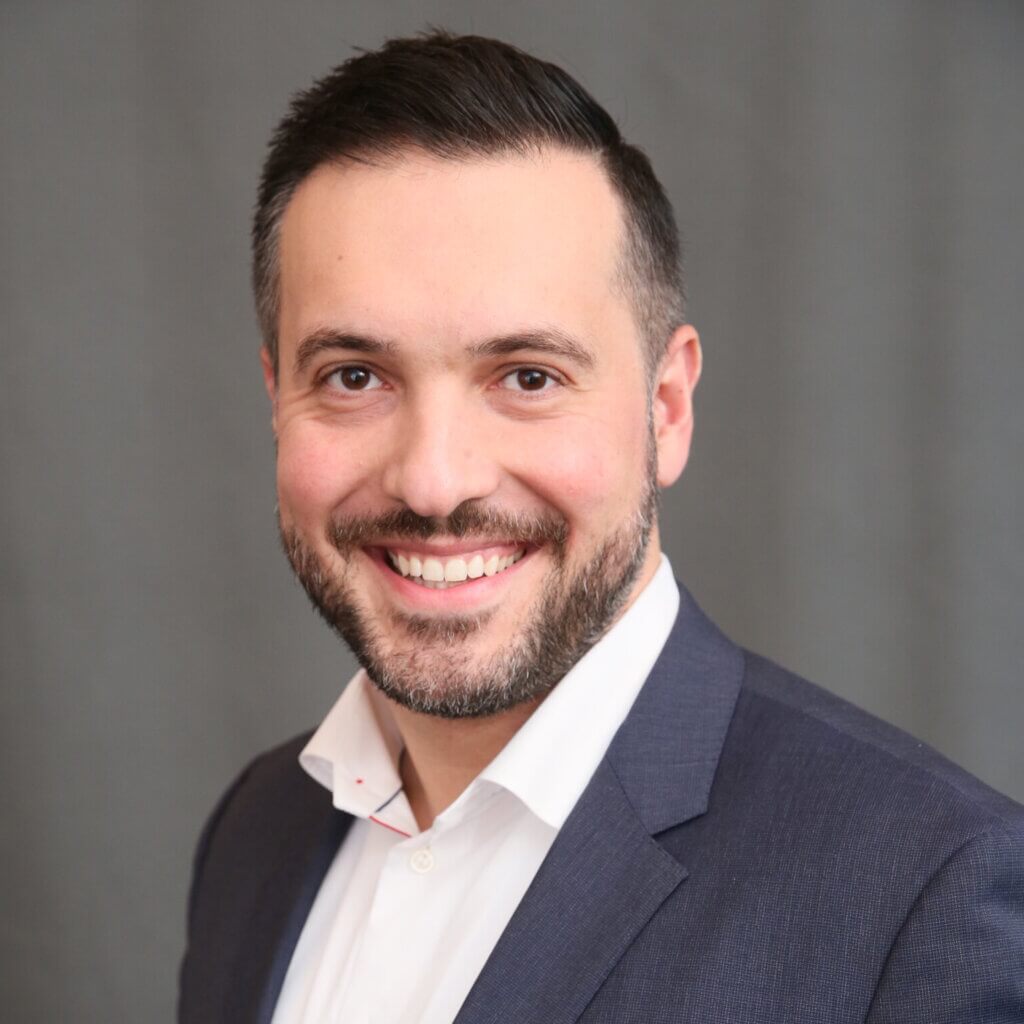
Tim Toska
United States
Global Sector Head, Private Equity
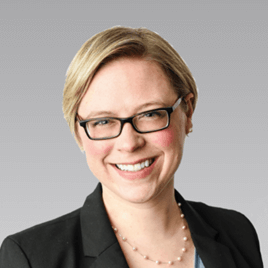
Emily Ergang Pappas
United States
Head of Legal, North America
Conference
Private Funds CFO Network Chicago Roundup
David Traverso and TJ Veneris are looking forward to networking and discussing what matters in private equity and venture capital at the PEI Private Funds CFO Network Chicago Roundup this June 6. Reach out via the contact below.
Key contacts

David Traverso
North America
Managing Director, Sales at Alter Domus North America
More events
No related content found.
Conference
Global ABS 2024
Alter Domus are looking forward to attending the Global ABS in Barcelona this June, 4-6. This conference is a great opportunity to connect within the structured finance community, gain market insights and make deals.
Be on the lookout for our US team Tim Ruxton, Tom Gandolfo and Lora Peloquin as well members of our European team Juliana Ritchie, Amit Varma, Steve Baxter and James McEvoy.
Key contacts
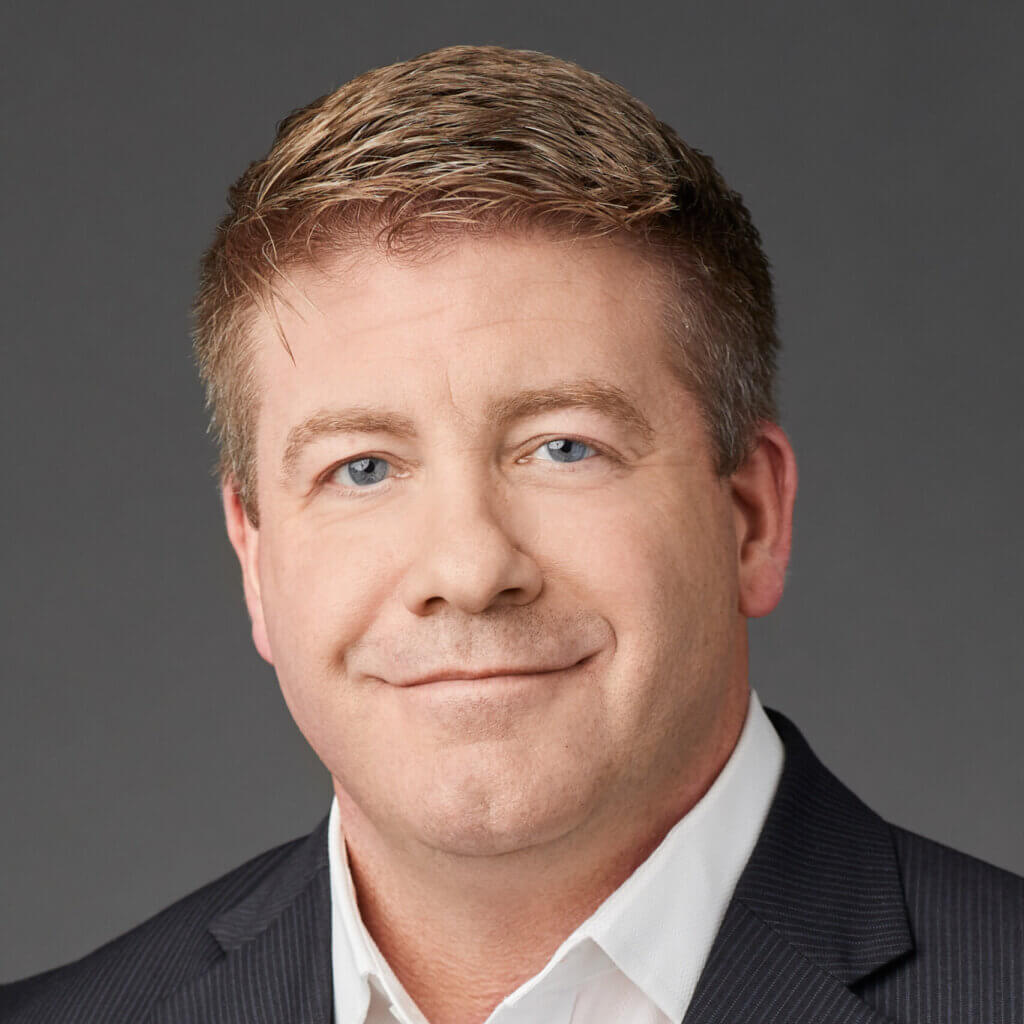
Tim Ruxton
United States
Managing Director, Sales, North America
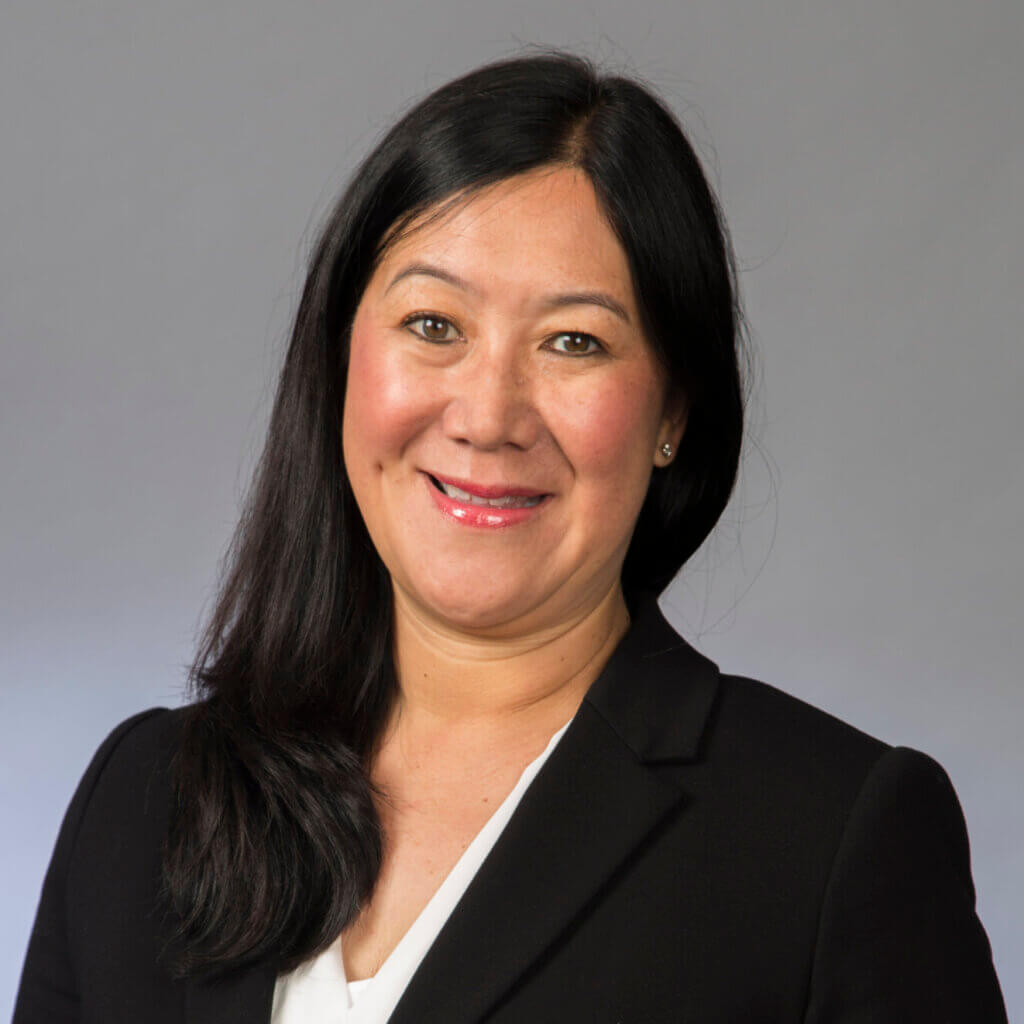
Juliana Ritchie
United Kingdom
Head of Sales & Relationship Management, Debt Capital Markets, Europe
More events
No related content found.
Conference
NAREIM Portfolio Manager Meeting
Find Benay at the 2.15 session on SEC Private Fund Adviser Rules.
Key contacts
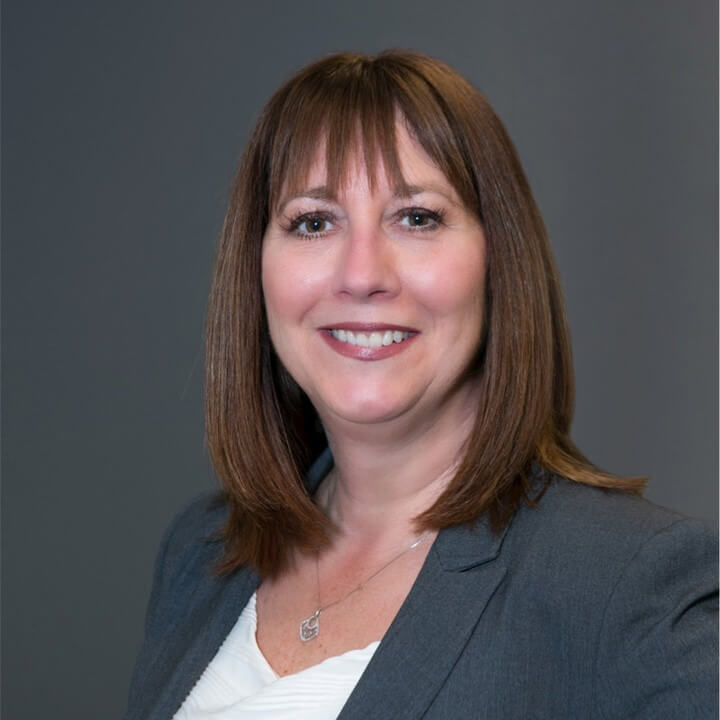
Benay Kirk
United States
Managing Director, Real Estate, North America
More events
No related content found.
Conference
SuperReturn International
Key contacts
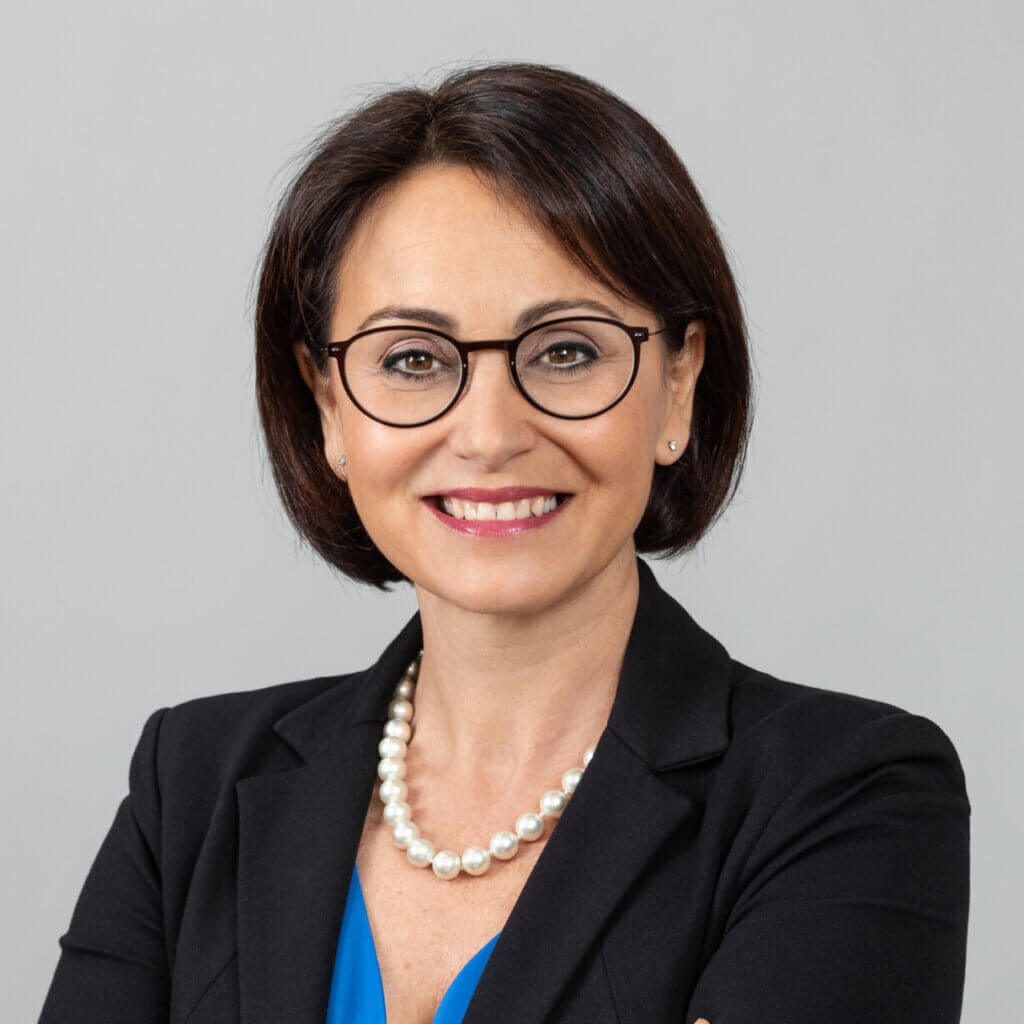
Angela Summonte
Luxembourg
Group Director, Key Accounts
More events
No related content found.
Conference
FT Live: “Optimising Client Interactions in the Finance Sector”
How can firms leverage the advantages of virtual and in-person meetings for better client outcomes? Find out on 9 November during the Financial Times webinar: Optimising Client Interactions in the Finance Sector.
The event is focused on the virtual and in-person interactions within the financial sector, and aims to highlight the respective pros and cons of digital engagement in client relationships and workplace productivity. Alter Domus’ Danilo McGarry, with his deep expertise in digital transformation and data, will be sharing his insights on how digitalization is changing how the industry interacts with its clients and stakeholders. Don’t miss it!
Key contacts

Danilo McGarry
United Kingdom
Head of Digital Transformation
More events
No related content found.




